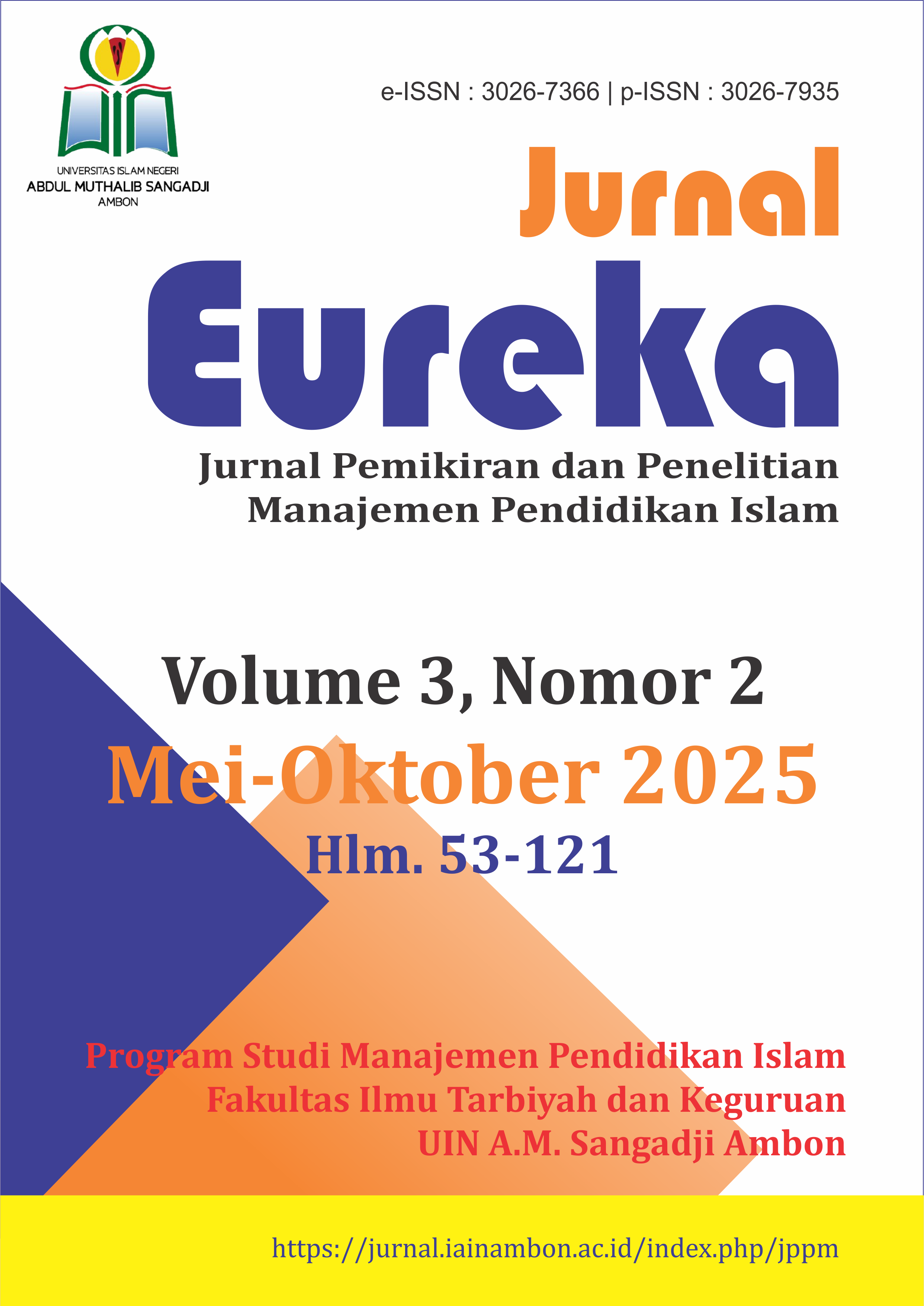Study on the Implementation and Evaluation of Management Models and Approaches to Islamic Education for Early Childhood
DOI:
https://doi.org/10.33477/eureka.v3i2.10863Abstract
This study discusses the implementation and evaluation of management models and approaches used in early childhood Islamic education (PIAUD). The focus of the study is on how managerial concepts are applied systematically and in accordance with the characteristics of child development. Using a qualitative literature review method, this article analyses relevant literature on management strategies and Islamic educational approaches. The results indicate that the effectiveness of management is highly dependent on the alignment of approaches with children's needs, the role of educators, and institutional structure. Evaluation of the implementation of management models in PIAUD institutions highlights the need for continuous adaptation and innovation to achieve optimal learning outcomes. These findings are expected to contribute to the development of an Islamic values-based management system for early childhood education
Keywords: Strategy, Evaluation, Early Childhood Education
Downloads
Published
How to Cite
Issue
Section
License
Authors who publish with this journal agree to the following terms:
Authors retain copyright and grant the journal right of first publication with the work simultaneously licensed under a Creative Commons Attribution License that allows others to share the work with an acknowledgment of the work's authorship and initial publication in this journal. Authors are able to enter into separate, additional contractual arrangements for the non-exclusive distribution of the journal's published version of the work (eg, post it to an institutional repository or publish it in a book), with an acknowledgment of its initial publication in this journal. Authors are permitted and encouraged to post their work online (eg, in institutional repositories or on their website) prior to and during the submission process, as it can lead to productive exchanges, as well as earlier and greater citations of published work (See The Effects of Open Access).






